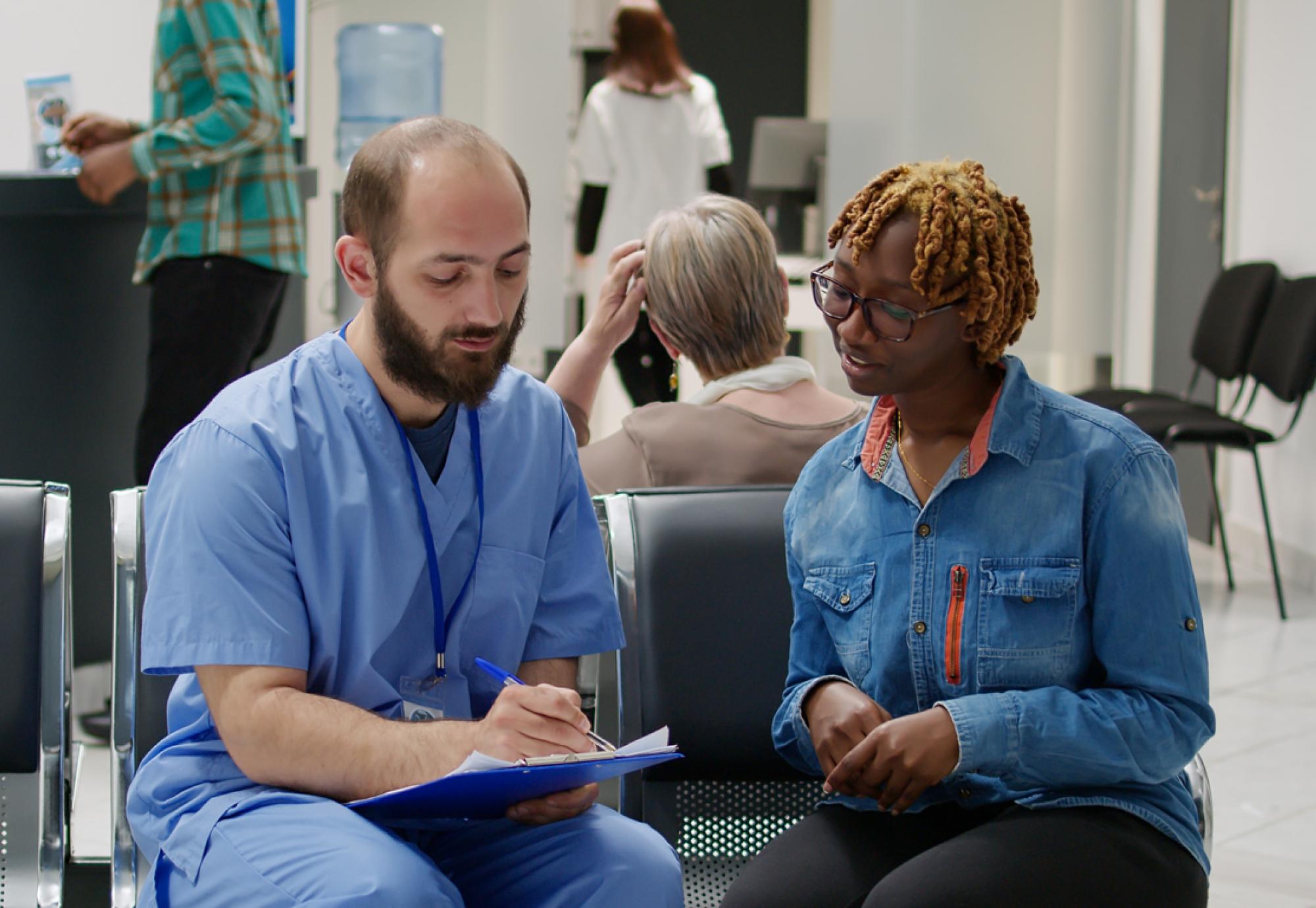Waiting lists have once again hit an all-time high. 7.5 million people are currently waiting for treatment in England, that’s more than 1 in 10 of the population. Just under half of them, 3 million, have been waiting for more than 18 weeks.
It’s the worst it has ever been. Add in the impact of strikes and staff shortages and it feels bleak. People stuck on waiting lists for longer than necessary face significant clinical risks.
It’s more important than ever that patients only go on waiting lists if they have to and that those lists are as short as possible. What’s more, urgent cases need to be identified and those people avoid the queue. This is where Referral Triage and Validation come in.
Referral Triage and Validation involve a clinician looking at the patients on a waiting list and making sure they are in the right place. For example, some patients don’t need to be on a waiting list at all. “Advice & Guidance” projects across the UK have shown that many patients can get the care they need immediately from their GP, if the GP is advised by a hospital consultant. Referral triage allows that.
Other patients do need hospital treatment but, again, having a specialist look at the referral means that they can check that that patient is being sent to the right place first time. Often the patient can be sent straight for a test, bypassing the wait for an appointment and getting a faster diagnosis.
In fact, referral triage is so successful that we believe it could reduce waiting lists by as much as a third, more in some specialties. So why isn’t everyone doing it? The answer is staffing.
Solving the staffing conundrum
There simply aren’t enough doctors to make Referral Triage business as usual. Consultants are faced with waiting rooms at capacity and not enough time in the day to focus on non-patient contact. So, we have the faintly absurd situation where we know that a certain proportion of referrals are unnecessary, but they are seen anyway because there is no time to decide that they don’t need to be seen!
Time to think outside the box. Time to think outside your area! The solution is remote clinicians: let local consultants see local patients; let remote consultants make sure that only those patients who need to be seen are seen!
Consultant Connect’s clinically-led Referral Triage and Validation service uses remote consultants to help make sure that only those patients who need hospital go on the waiting list and that all patients get the treatment they need as quickly as possible.
How does it work
The service uses the clinical expertise of NHS consultants across 17 specialties from the National Consultant Network (NCN). The NHS consultants are brought in on a ‘remote locum basis’, following local pathways and protocols, under the leadership of the local clinical leads, to triage and validate waiting list backlogs in bulk and/or new referrals as they come in. They can also be brought in to review and validate follow up lists to ensure patients are seen/discharged in the most appropriate way (e.g. face-to-face, virtual, discharged to PIFU pathways etc.).
How long does it take to get started
Once the ‘remote’ NHS consultants are allocated for the triage, a briefing meeting between them and the local clinical lead for the respective specialty takes place. It’s important to discuss what’s available in an area, for example in terms of diagnostics in the community, rapid access clinics etc. If certain services are unavailable, the ‘remote’ NHS consultant will be able to advise on the best alternatives and treatments in the interim.
Following the clinical briefing meeting, the service can be switched on at pace – within 72 hours, quickly reducing clinical risk and improving patient care.
The switch-on/switch-off model means as local capacities change, it can be increased to cover more specialties, reduced, or turned off completely with 72 hours’ notice.
Key impact and benefits
Over 50,000 referrals have been reviewed via the service, reducing lists by 28% on average.
As a result of Referral Triage and Validation, waiting lists are cleared, and:
Diagnostics are initiated where needed:
>2,000 Cardiology referrals triaged in one trust resulted in 41% of cases being safely returned to Primary Care once diagnostic results were reviewed.
Important upgrades and downgrades are identified:
>1,000 Neurology referrals triaged in one trust resulted in 45% of cases being accepted for a routine appointment, whilst 7% of cases were upgraded to 2WW pathways.
Cases are returned to Primary Care with management plans:
>1,000 ENT referrals triaged in one trust resulted in 34% of cases being safely returned to Primary Care detailed Advice & Guidance with a management plan.
Cases receive treatment plans ahead of their first outpatient appointment:
>4,000 Dermatology referrals triaged in one trust resulted in 47% of cases receiving Advice & Guidance and treatment plans to commence prior to their first appointment.
Hear from the NHS consultants delivering the service:
NHS consultants triaging and validating waiting lists via the service share first-hand experiences, pathway efficiencies and opportunities for improvements at this upcoming webinar. Click here to find out more and to book your free place.
For more information:
If you’d like to find out more about Consultant Connect’s Referral Triage and Validation service and how it could help your NHS area, email [email protected] or call the team on 01865 261 467.
Image credit: iStock



















